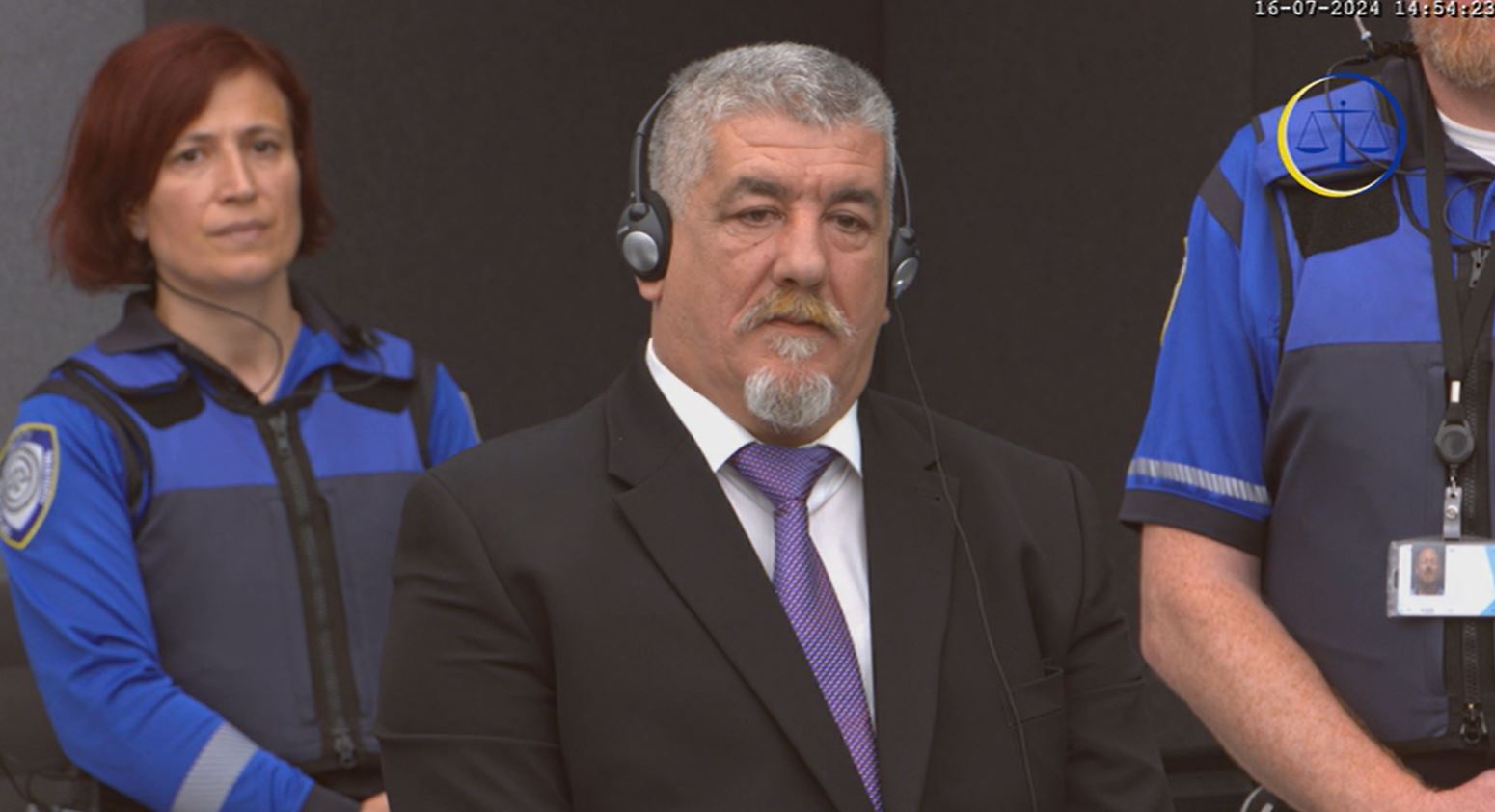
Pjeter Shala was sentenced to 18 years in prison for the arbitrary detention and torture of at least 18 detainees, and the murder of one detainee, at the Kukes Metal Factory in Albania.
The Kosovo Specialist Chambers in The Hague on Tuesday found former Kosovo Liberation Army member Pjeter Shala guilty of three war crimes charges, including the arbitrary detention and torture of at least 18 detainees at the Kukes Metal Factory in Kukes, Albania and the murder of one prisoner.
The court found that Shala was “individually criminally responsible as part of a joint criminal enteprise” in the arbitrary detention, torture and murder of prisoners held at the factory, which the KLA used as a detention centre.
The trial panel considered that, as “the charge of cruel treatment is fully consumed by the charge of torture”, Shala was not guilty of cruel treatment.
Known during the 1998-99 conflict by his KLA nom-de-guerre “Commander Wolf”, he was sentenced to 18 years in prison “with credit for time served [in detention]”. He had pleaded not guilty on all counts.
The court found that at least 18 people were detained, interrogated and physically and psychologically abused at the factory between around May 17, 1999 and June 5, 1999.
“The victims were predominantly Kosovo Albanians”, presiding Judge Mappie Veldt-Foglia explained prior to announcing the verdict. She added that “the evidence shows that individuals were apprehended and detained on vague allegations of being traitors, collaborators of Serbian authorities … or not sufficient supporters of the KLA, financially, militarily, or politically”.
Judge Veldt-Foglia noted that “detainees were arrested at their place of residence, streets, upon arrival in Albania from abroad, in refugee camps, or where they were sheltered,” and that Shala was directly involved in the transfer of one of the detainees to Kukes Metal Factory.
“The detainees were beaten until the morning, and were forced to slap one another and pretend to having sexual intercourse with one another,” the judge said, quoting one of the witnesses as testifying: “I don’t know how many times i fainted, they poured water to bring me back and I fainted again, this occurred throughout the night.”
The court confirmed the prosecution’s claims that Shala participated in mistreating the murder victim before and after being shot in the leg. The beating left the victim bruised all over his body, he was not able to move or urinate, and was bleeding from the gunshot. One of the KLA members did not allow his transfer to hospital despite a doctor’s recommendation. The detainee died on or around June 4-5, 1999, while still in detention at the factory, as a result of the gunshot wound and the beatings.
“Shala possessed the intent to kill,” judge Veldt- Foglia said, noting that he explicitly told one of the detainees: “We are going to kill you.”
Shala rejected the guilty verdict, shouting at the court, although he was not given the right to speak.
The defence had claimed that Shala did not have responsibility or authority over persons at the Kukes Metal Factory and there is no evidence that proved otherwise.
Lawyer Jean-Louis Gilissen had told the court during closing statements in mid-April that the defence did not deny that detentions and mistreatment occurred at the factory, but said Shala never participated in such acts, nor was he guilty of “the murder of one of the detainees”.
Gilissen accused the Specialist Prosecutor’s Office, SPO, of selecting testimony that supported its claims.
The SPO had requested 28 years’ imprisonment. Prosecutor Filippo De Minicis, during his closing statement, had said that Shala deserved a severe punishment because “the contribution he made to these crimes was considerable. He exercised terrible violence against the terrorized victims.
“Beating people who cannot defend themselves is not war, it is an unjustifiable, cowardly act of violence. The accused did nothing to relieve the pain. At the very least, he could have walked away while these atrocities were happening, but he didn’t. He beat one after another and time has not changed his character,” the prosecutor had said.
The indictment named two other KLA ex-fighters, Sabit Geci and Xhemshit Krasniqi, as members of the “joint criminal enterprise” along with Shala. Neither has been charged.
Lawyer Gilissen reminded the court during the closing statements that Krasniqi had been sentenced to eight years imprisonment and his comrade Geci to 12 years for crimes committed in Cahan, Albania.
The Specialist Chambers are part of Kosovo’s judicial system but are located in The Netherlands and staffed by internationals, established under pressure from the country’s Western allies who said they suspected that Kosovo’s justice system was not robust enough to try KLA cases and protect witnesses from intimidation.
Many Kosovo Albanians believe the court is ethnically biased and denigrates the KLA’s war against Serbian repression, which they deem just.
The court proceedings have constantly been followed by witness intimidation claims.
The verdict can be appealed.